As a junior member of the engineering team, Amjad started her career with Tenable Fire Engineering Consultancy (FEC) in Oman in 2019 after completing her bachelor’s degree in engineering at the German University of Technology. We spoke to Amjad about her journey so far, her proudest moments and her future plans.
- Who/what inspired you to start a career in fire engineering?
Growing up, I was always more interested in understanding how a toy worked than the toy itself. I enjoyed taking things apart, studying the parts and figuring out how I could put them back together. As I got older, I I began to realise that I am much more analytical than creative, and my passion for mechanics was encouraged by my family, who are all connected to engineering in some way, and I was able to learn from my older brothers.
During my school years, I excelled in subjects such as maths and science. I was introduced to the broader field of technology, with disciplines such as computer engineering, graphic design, and mechanical engineering. Just as my family encouraged me, I was surrounded by classmates who shared the same technical interests as me, which gave me the added confidence I needed to pursue a career in engineering.
- What unique challenges have you faced throughout your career?
The transition from higher education to a work environment has been the biggest challenge so far. I joined Tenable FEC right after graduation, so the technical information was fresh in my mind, and I could put theory into practice quickly. However, in addition to the technical work required as an engineer, we interact with clients and ensure we are giving them the best service while still adhering to all the relevant codes. This is not something we are taught during our studies, so figuring out the real-life application of this technical knowledge and the learning must be done on the job. Luckily I have a very supportive team at Tenable FEC and have been guided throughout my journey so far.
- What is the most rewarding aspect of your role?
Many of the projects I have worked on are in Oman, and it is always rewarding to visit a building I have worked on. For example, I was on the team responsible for one of our largest and most significant projects, the iconic Mall of Oman, and now when I visit there with friends, I am proud to show them the elements I worked on.
- What is the proudest moment of your career so far?
As my formal training is in mechanical engineering, I am now further specialising in fire engineering, and I am learning something new every day. With the support of the team, the diverse range of projects we work on and my motivation to grow, I can continue to expand my knowledge across all the different elements involved in fire engineering. I have the space to research the various sectors, codes and country requirements, which motivates me to strive to improve my skills as I work towards studying for a master’s degree in fire science engineering.
- What are the most common misconceptions about women in engineering?
I believe the biggest global misconceptions are that women cannot balance a career and a family and cannot handle the work and pressures associated with male-dominated industries such as engineering and construction. However, both of these are not true. I know many women who work and have a family without compromise, and many of my peers work within the construction and engineering fields.
In Oman specifically, there are far more female engineers than many people realise, including women who hold high ranking positions in both public and private sectors. A high percentage of engineering students in Oman are women, particularly in the fields of civil engineering and computer engineering. It has been a great inspiration to be surrounded by so many driven and ambitious women, all looking to forge careers and break down gender stereotypes.
- What advice would you give to young women looking to enter the field of engineering?
The best advice I can give to other young women looking to start their careers in engineering is to ignore the misconceptions and stereotypes and just to go for it!
Once you have decided to become an engineer, stay curious and continue to learn as much as you can. Don’t be afraid to make mistakes and ask questions — it is all part of the process and enhances your learning. Lastly, create healthy boundaries between your work and personal life and create enough space to enjoy your free time.
